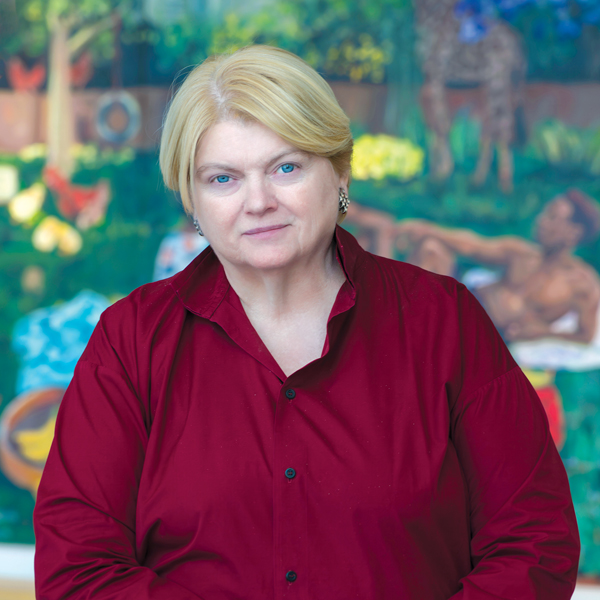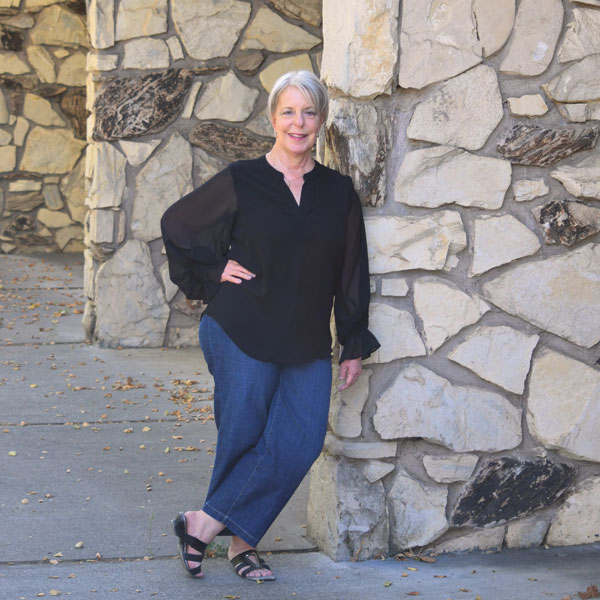
Nov 28, 2024
As a kid, I spent many hours at the Crocker Art Museum. Between school trips and weekend jaunts with my artist parents, I wandered the halls finding favorite paintings and artifacts.
One constant was the presence of Lial Jones, the Crocker’s Mort and Marcy Friedman director and CEO. Deeply kind despite an imposing presence, Jones would greet us with a smile. I was star-struck, knowing she ran the place.
Now Jones is retiring. In January, she leaves a 25-year Crocker legacy that could fill volumes.
Under Jones, the collection grew by 23,000 objects, attendance and membership doubled, and programming expanded. She oversaw the tripling of the Crocker’s physical footprint with the addition of the Teel Family Pavilion.

Nov 28, 2024
Ryan and Heather Filippini go way back. They met as youngsters at St. Anne’s Catholic School in Lodi, followed separate paths to college, got reacquainted in Sacramento and married in 2010.
Now they work mostly from home. Ryan works in real estate. Heather works for a tech support company. East Sac is their base.
“Our first East Sac home was a two-bedroom, one-bath near Bertha Henschel Park,” Ryan says. “We then upgraded to a larger house across the street. We loved our neighbors and our tightknit neighborhood, especially during COVID lockdowns.”

Oct 28, 2024
Steve Benson, one of Sacramento’s finest and most beloved men’s clothing store owners, died in September from complications of the motor neuron disorder ALS, or Lou Gehrigs’s disease. He was 76.
Steve founded S. Benson & Co. fine men’s clothing in 1995. The East Sac shop was a high-end boutique with exceptional style and inventory.
Treasured for his old-school service, Steve was expert at custom-fitting clients or helping choose ready-to-wear apparel. Fathers and sons became generational clients.

Oct 28, 2024
Robert Caro’s legendary book, “The Power Broker,” turned 50 this year and holds up remarkably well. The 4-pound tome about the notorious New York urban planner Robert Moses stared down from my bookshelf about half that long before I finally hauled it out and read it.
It takes commitment to open a 1,286-page book, which was even longer before Caro’s editor, Robert Gottlieb, trimmed 350,000 words. But it’s still a riveting read, now in its 74th printing and new digital version.
With concern in Sacramento over the dangers faced by pedestrians and bicyclists on local roads, this is a good time to read about a planner who championed the automobile.

Oct 28, 2024
Laura Lofgren can’t stop lending her voice to the Sacramento Master Singers. As the group opens its 41st season, Lofgren sings alto and serves as board president.
Her relationship with the nonprofit choir dates from 1990, when Lofgren and husband John auditioned to sing. One year later, they joined the board, Laura as choral liaison and secretary, John as vice president.
“It’s not just a choir, it’s more like an extended family,” says Lofgren, who spent 37 years in education before retiring from the Twin Rivers Unified School District in June. “We all truly care for each other.”

Oct 28, 2024
Hidden in plain sight, a tiny kitchen sits on a busy Curtis Park street. Called Good Things to Eat, the storefront produces amazing scratch-cooked meals.
It’s not exactly a restaurant, but mother-daughter team Delcy and Elinor Steffy create delightful, satisfying meals. I want more of it.
Let me set the stage. Picture a hot October night on Franklin Boulevard. There’s a line out the door at Gunther’s Ice Cream. Flavor of the month is pumpkin.











